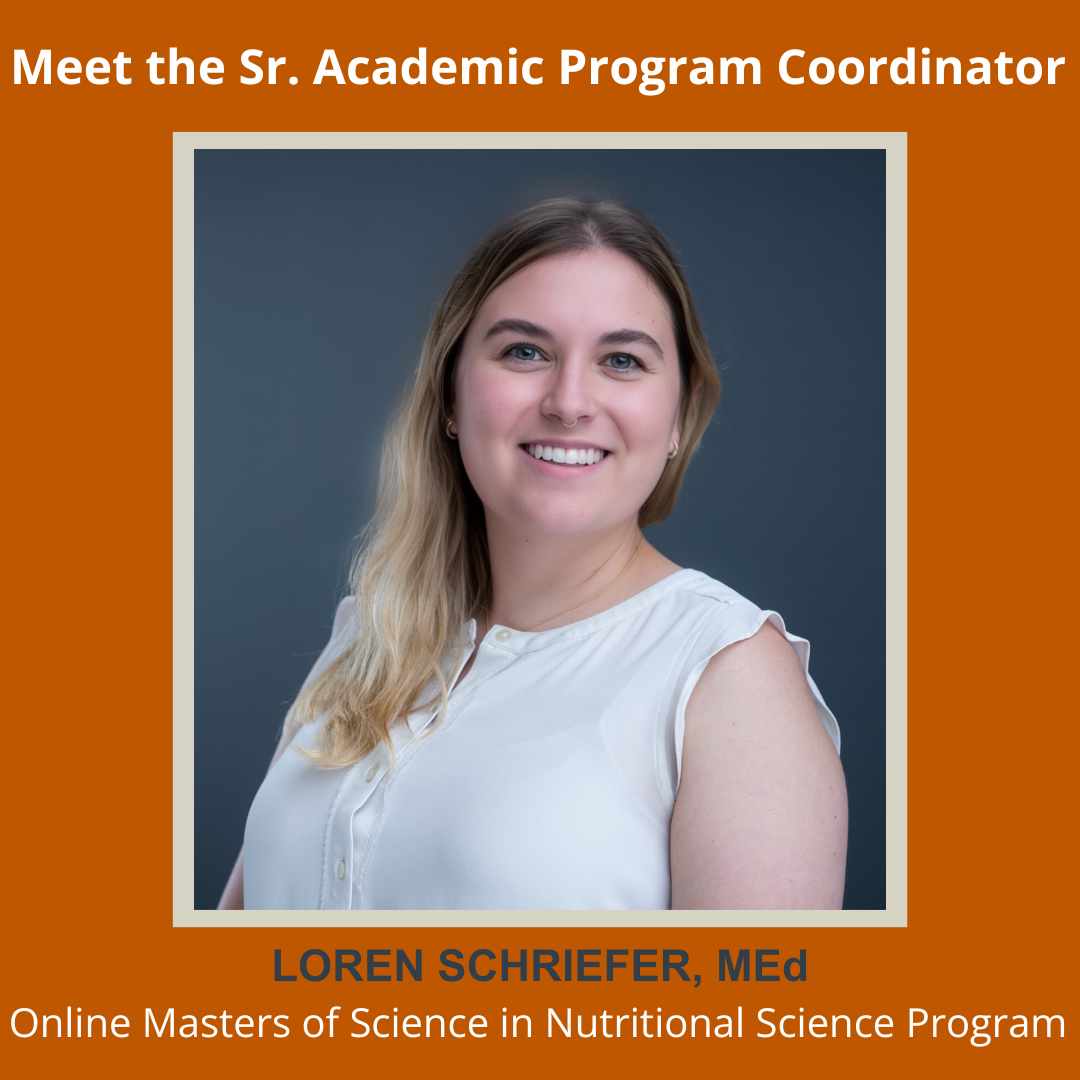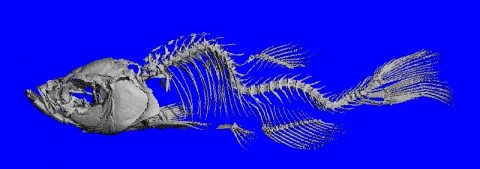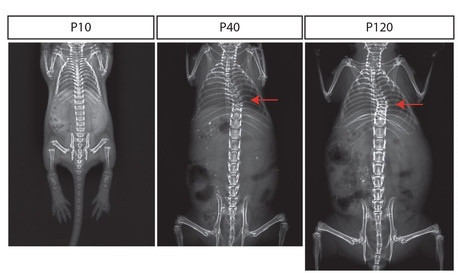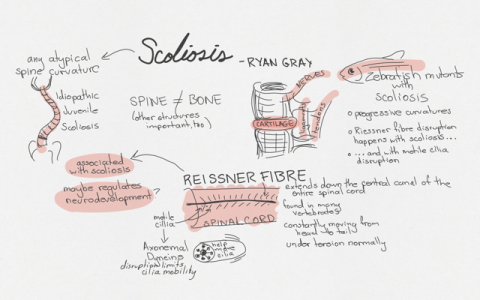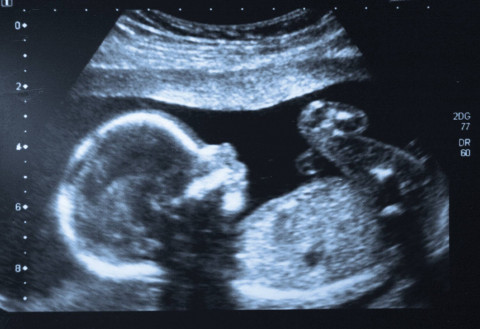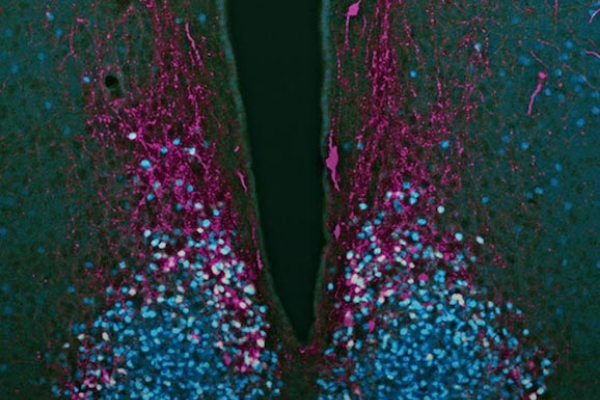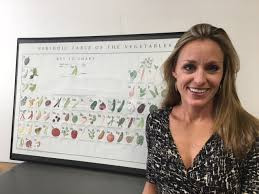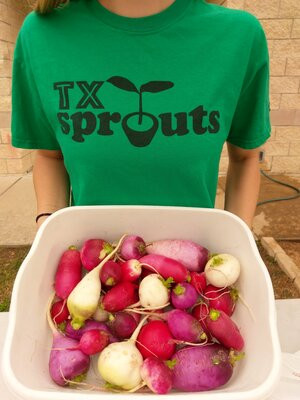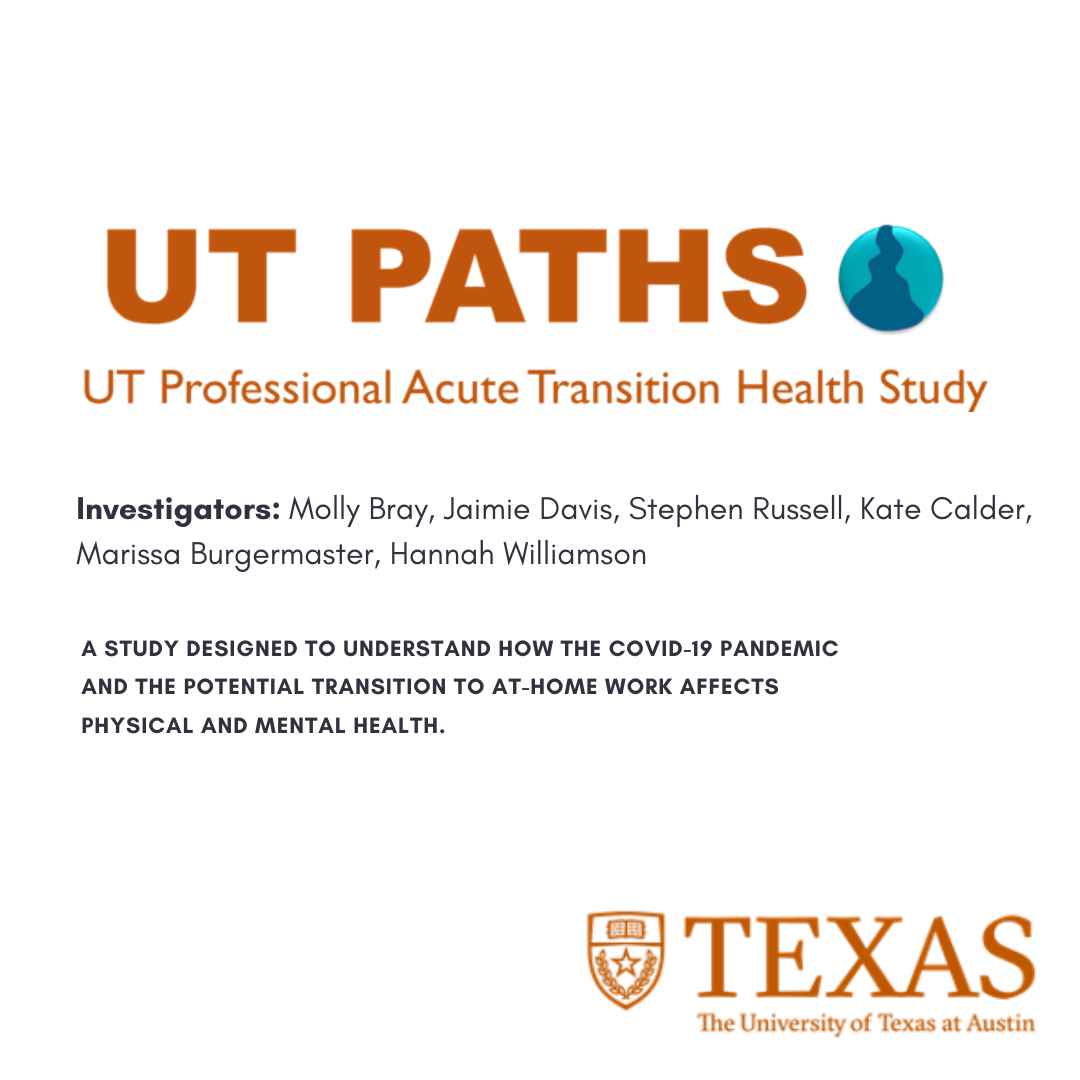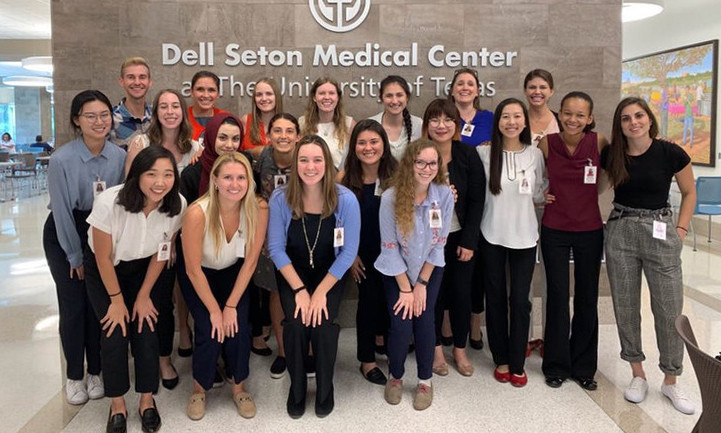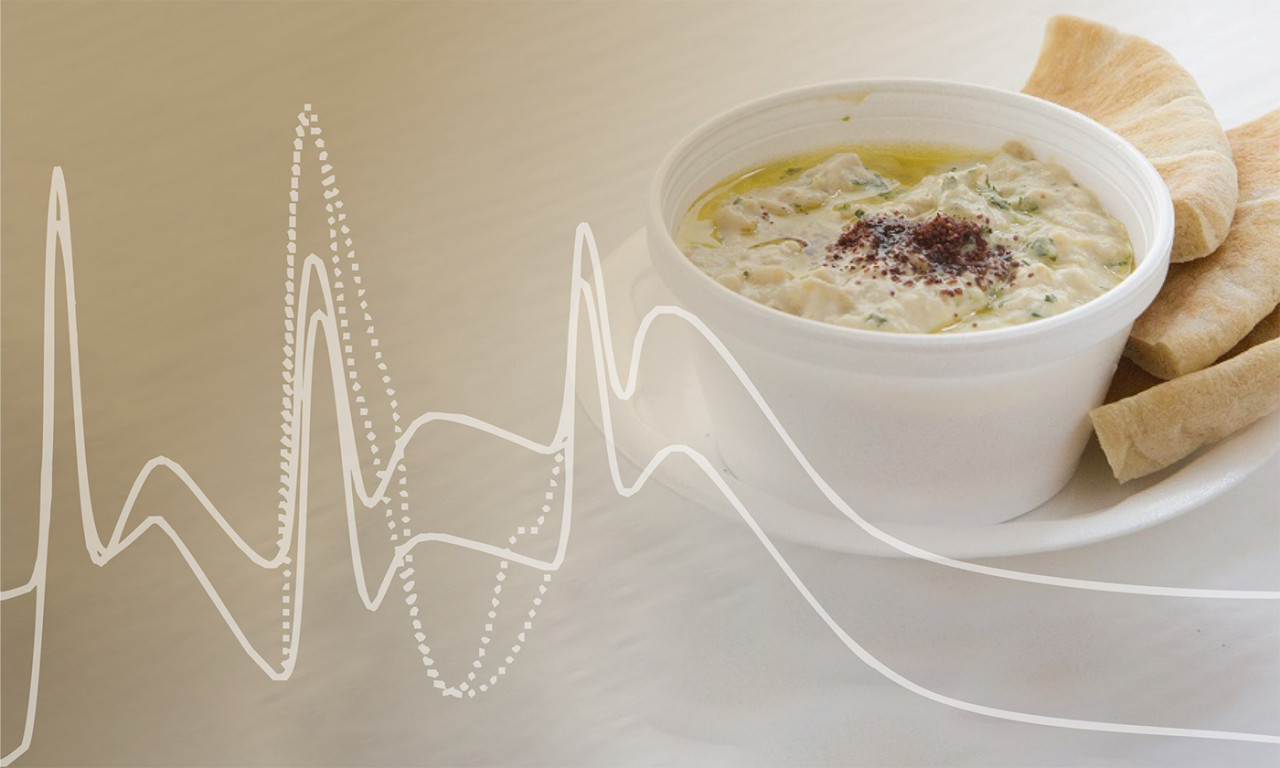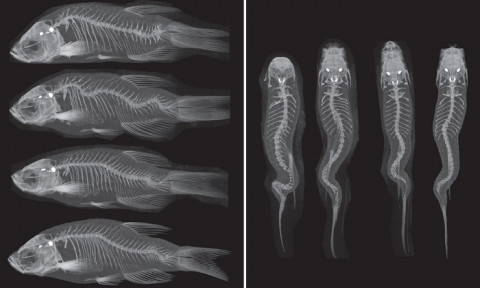Nutritional Sciences Department Highlights
Online MSNS Director Announced
We are delighted to announce that Dr. Lauri Lashinger will be taking over from Dr. Sara Sweitzer as Director of the Online Master's in Nutritional Sciences Program. Dr. Lashinger is Associate Professor of Instruction and Associate Chair of Undergraduate Studies in the Department of Nutritional Sciences at the University of Texas at Austin. She...FACULTY SPOTLIGHT: Dr. Drew Hays and Her Background in Culinary Arts + MSNS Highlights
OverviewProfessor Drew Hays received her bachelors in Nutritional Sciences from UT-Austin. She then completed her dietetic internship to become a Registered Dietitian (RD) at the University of Houston and came back to UT to obtain her master's degree in Nutritional Sciences. She also holds a degree in Culinary Arts and is a professiona...Dr. Marissa Burgermaster and Her Work in Behavioral Nutrition
OverviewDr. Marissa Burgermaster is a Behavioral Nutrition Scientist. She completed her undergraduate as a music major and psychology major. She received a Master's in Education and became a teacher and administrator for an elementary and middle school, developing curricula and training teachers. During her time there, she noticed a li...Dr. Christopher Jolly and His Research in Immunology + MSNS Highlights
OverviewDr. Christopher Jolly received his PhD in Nutrition from Texas A&M College Station, followed by a postdoctoral fellowship in the Department of Veterinary Physiology and Pharmacology. He went on to complete a second postdoctoral fellowship at the University of Texas Health Science Center at San Antonio in the Department of M...FACULTY SPOTLIGHT: Dr. Monica Meadows and Her Leadership in Dietetics + MSNS Highlights
OverviewDr. Monica Meadows received her B.S. in Nutritional Sciences from UT-Austin, completing the Coordinated Program in Dietetics (CPD) to become a Registered Dietitian. Originally, Dr. Meadows wanted to obtain a Master's in Health Education to further her interests in research, but after being a TA for the CPD for one semester, she...Weight Gain in Pregnancy May Be Linked to Later Growth Patterns in Daughters
Rapid weight gain in the first and final months of a pregnancy may play a key role in the development of excess fat tissue in children and adolescents – at least if those children are girls, according to a new study from researchers at The University of Texas at Austin.
In the study, published today in the journal Obesity, nutritional sciences researchers looked at more than 300 pregnant women and followed their children from 5 to 14 years old. The researchers connected patterns of weight change in pregnancy to patterns of their children's body mass index (BMI), waist circumference and body fat percentage changes during childhood and early adolescence.
FACULTY SPOTLIGHT: Dr. Jaimie Davis and Her Work in Obesity Related Interventions
OverviewDr. Jaimie Davis received her PhD in Nutritional Sciences from UT-Austin. She is currently an Associate Professor in the Department of Nutritional Sciences. For almost two decades, she has been working with obesity-related interventions. You may be wondering, what prompted Dr. Davis to be involved in this specific field of rese...FACULTY SPOTLIGHT: Dr. Ryan Gray and His Research in Idiopathic Scoliosis
OverviewDr. Ryan Gray is the Faculty Spotlight for this month. Dr. Gray is an Assistant Professor in the Department of Nutritional Sciences, with a courtesy appointment in the Department of Pediatrics in the Dell Medical School. He received his PhD in Cellular and Molecular Biology from UT-Austin, followed by a postdoctoral fellowship ...Mother's Body Weight, Home Environment, & In Utero Risks for Boys
In the latest Texas Scientist, "Boys and Risk in Utero" features the research of Nutritional Sciences Assistant Professor Elizabeth Widen. Boys are typically more vulnerable in the womb, and Dr. Widen's research findings suggest that mother's weight and a nurturing home environment could also impa...Circadian Clock Genes And The Importance of Timing in Aging and Longevity
2021 Jean Andrews Centennial Lectureship: Dr. Anne Mctiernan
Dr. Anne Mctiernan, a Pioneer in Women's Health Research This year, the Department of Nutritional Sciences is pleased to host Dr. Anne McTiernan as the 2021 Jean Andrews Centennial Visiting Professor.After securing her bachelor's degree in sociology at Boston University in 1974, Dr. McTiernan went on to obtain a Ph.D. in Epidemiol...FACULTY SPOTLIGHT: Dr. Jaimie Davis and The Work That She is Doing to Improve Childhood Obesity
Faculty Spotlight: Dr. Jaimie Davis PhD, RD Dr. Jaimie Davis is the Faculty Spotlight for this month. Jaimie N. Davis, PhD, RD is an Associate Professor at The University of Texas at Austin. She is a Registered Dietitian and received her PhD in Nutritional Sciences. She currently serves as the Graduate School Committee Chair ...School Gardens Linked With Kids Eating More Vegetables
Getting children to eat their vegetables can seem like an insurmountable task, but nutrition researchers at The University of Texas at Austin have found one way: school gardens and lessons on using what's grown in them.
Researchers worked with 16 elementary schools across Central Texas to install vegetable gardens and teach classes to students and parents about nutrition and cooking. In a study recently published in the International Journal for Behavioral Nutrition and Physical Activity, the team describes specifically targeting schools with a high percentage of students on the free and reduced-price lunch program to understand how nutrition programs affect low-income groups. Each school was studied for one academic year.
UT PATHS Study: A study designed to understand how the COVID-19 pandemic and the potential transition to at-home work affects physical and mental health.
UT Professional Acute Transition Health Study Millions of people around the globe work in home-based occupations, from tech support to online sales to web-based networking applications. In 2018, approximately 22% of Americans spent all or part of their day working at home. It is often assumed that working at home brings many advantages, including ...SoHE Graduate Workshop--Monday, October 26th at 9am
The School of Human Ecology will be hosting our second graduate student workshop of the Fall 2020 Semester on Monday, October 26th at 9am. This workshop will feature three recent graduates from the School of Human Ecology that went on to careers in Industry. Feel free to join what will certainly be a lively and interesting discussion about making t...E-Cookbook Promotes Healthy Eating Amid COVID-19 and Raises Funds for Charity
A team of 20 undergraduates from the University of Texas at Austin created a donation-based e-cookbook titled "Food: For the Love of Community" that offers easy recipes and guidance on how to maintain healthy food habits amid the COVID-19 crisis.T
he students make up this year's Coordinated Program in Dietetics, a 3-semester pre-professional program where those enrolled rotate between work in hospitals, food banks and community centers on their way to becoming registered dietitians. Linda Steinhardt, who kick-started the project, said the group's diverse, on-the-ground experiences helped them make the book.
Food: For the Love of Community
Have you found yourself running out of recipes during quarantine? The dietetic students from the University of Texas at Austin have you covered. They have created a 70+ page donation-based e-cookbook titled Food: For the Love of Community. Their goal with this cookbook was to provide easy, accessible, and fun recipes for everyone to try and enjoy. ...Snacking on Hummus Shown to Improve Diet Quality, Appetite, and Mood
A new study performed by University of Texas at Austin researcher Heather Leidy found that snacking on hummus in the afternoon can improve diet quality, curb hunger and desire to eat, and even improve alertness throughout the day when compared to consuming high sugar snacks or eating no snack at all.
The paper, out today in the Journal of Nutrition, looked at adults who were given afternoon snacks of either red pepper hummus and pretzel crisps, a granola bar, or no snack for 7 days each. Both types of snacks had 240 kcals – the amount that is typically consumed by most Americans.
Researchers Discover Genetic Mechanism Behind Scoliosis in Fish
For about 100 years, scientists have known about the Reissner Fiber, an enigmatic structure inside the spinal canal of vertebrates. What they didn't know was exactly what role the Reissner Fiber played in the formation of the spine during different life stages and what influence it had on spinal conditions like scoliosis, a condition displaying atypical curvatures in the spine.
In a recent paper, researchers from The University of Texas at Austin have identified a genetic mechanism behind the formation of the Reissner Fiber and have been able to link the absence of the fiber to scoliosis in zebrafish.







